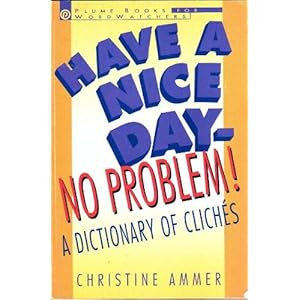Maybe not, if you're focused on what you mean to say and not on what you actually put on the page.
Verlyn Klinkenborg, a member of The New York Times Editorial Board, notes that often a writer speaks the language, knows the vocabulary, and tries to honor the rules of grammar and syntax.
Yet he regularly produces sentences of whose literal meaning he’s completely unaware. In its own way, this is fantastic, like setting out to knit a cardigan, producing an armoire, and wondering why it’s so loose in the shoulders.
Here’s an example, written by a student several years ago: “I also had my father’s thick fingers, fingers that I often hid underneath thighs.” You see the problem of course. The author apparently hides his (or her) fingers under anyone’s thighs, not just his (or her) own. This is what the sentence actually says, though not what the writer is hoping it says.Readers help a bad writer along, Klinkenborg says.
Readers also fail to catch such mistakes because they’re good at guessing what the writer really means. It’s not that they’re under-reading — skipping past the problem in a sentence. They’re nearly always over-reading, alive to the writer’s intention, as if the writer were somehow immanent in the sentence, looking over the reader’s shoulder, expecting the benefit of the doubt. We do this all the time in conversation. And so the sentence ceases to be a sentence — a verbal construct of a certain length, velocity and rhythm with, at bottom, an unambiguous literal meaning. It becomes a sign instead that telepathic communication is about to commence.What to do?
You’ll need to write, and revise, as if your intentions were invisible and your sentences will be doing all the talking, all on their own. This may be the hardest thing a writer has to learn. Looking at a sentence you’ve made is like looking at yourself in the shard of a mirror. A part of you has to be dreadfully literal-minded (and impervious to self-flattery) in order to do the work of making good, clear sentences. Seeing what your sentences actually say is never easy, but it gets easier with practice. There’s even a certain pleasure in discovering the booby traps you’ve laid for yourself in your prose.
"Inexperienced writers," Klinkenborg concludes, "tend to trust that sentences will generally turn out all right — or all right enough. Experienced writers know that every good sentence is retrieved by will from the forces of chaos."






